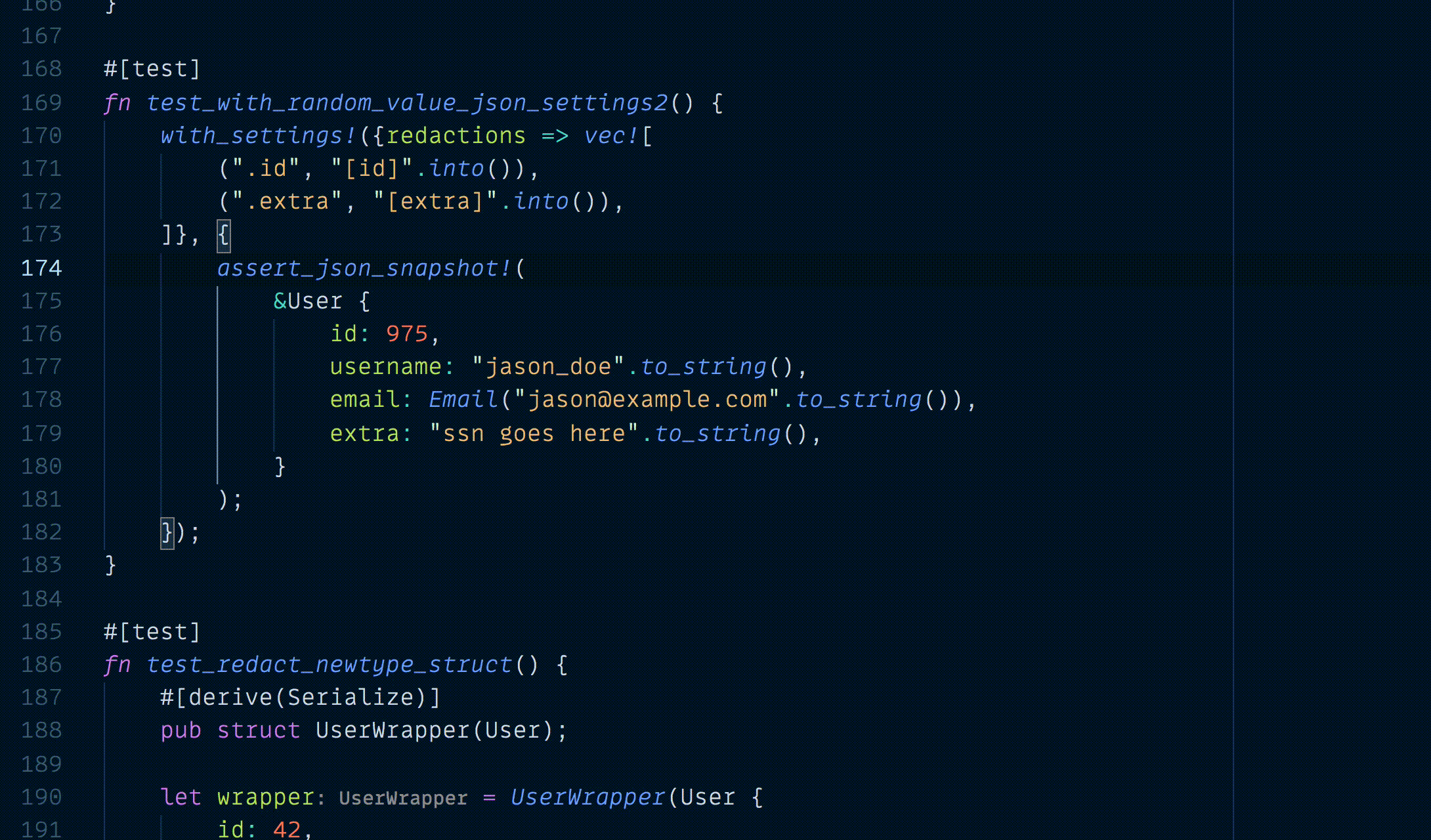Snapshots tests (also sometimes called approval tests) are tests that
assert values against a reference value (the snapshot). This is similar
to how assert_eq! lets you compare a value against a reference value but
unlike simple string assertions, snapshot tests let you test against complex
values and come with comprehensive tools to review changes.
Snapshot tests are particularly useful if your reference values are very large or change often.
#[test]
fn test_hello_world() {
insta::assert_debug_snapshot!(vec![1, 2, 3]);
}Curious? There is a screencast that shows the entire workflow: watch the insta introduction screencast. Or if you're not into videos, read the 5 minute introduction.
Insta also supports inline snapshots which are stored right in your source file instead of separate files. This is accomplished by the companion cargo-insta tool.
For looking at .snap files there is a vscode extension
which can syntax highlight snapshot files, review snapshots and more. It can be installed from the
marketplace: view on marketplace.
Insta uses similar for all its diffing
operations. You can use it independently of insta. You can use the
similar-asserts crate to get
inline diffs for the standard assert_eq! macro to achieve insta like diffs
for regular comparisons:
use similar_asserts::assert_eq;
fn main() {
let reference = vec![1, 2, 3, 4];
assert_eq!(reference, (0..4).collect::<Vec<_>>());
}If you like the project and find it useful you can become a sponsor.









